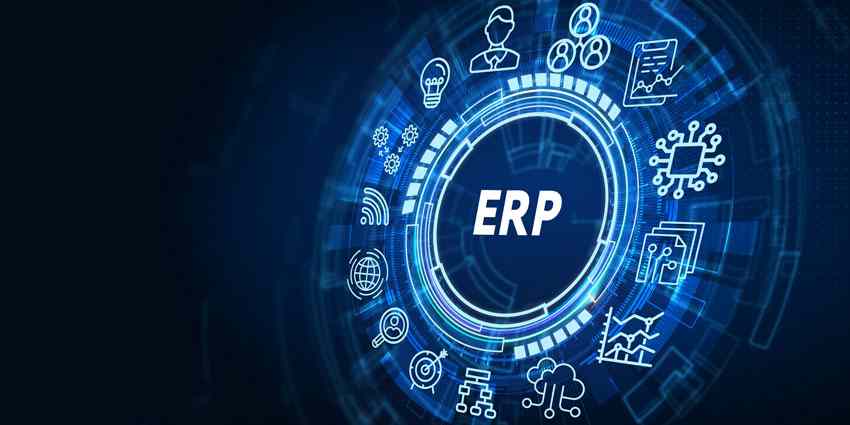- Introduction to ERP Software and Its Importance
- Benefits of Implementing ERP Systems
- Key Features and Functionalities of Modern ERP Solutions
- Popular ERP Software Vendors and Their Offerings
- Factors to Consider When Choosing an ERP System
- Challenges and Best Practices for Successful ERP Implementation
- Conclusion
Enterprise Resource Planning (ERP) software has become a cornerstone for businesses aiming to streamline operations and enhance productivity. In this guide, we’ll explore the importance of ERP systems, their benefits, key features, popular vendors, factors to consider when choosing an ERP solution, and best practices for successful implementation.
Introduction to ERP Software and Its Importance
ERP software integrates various business processes into a single system, providing a unified view of operations across departments. This integration enables better decision-making, improved efficiency, and a holistic approach to managing business resources. As businesses grow, the complexity of operations increases, making ERP systems crucial for maintaining organization and ensuring smooth workflows.
Benefits of Implementing ERP Systems
Improved Efficiency
ERP systems automate routine tasks, reducing manual effort and the likelihood of errors. This automation allows employees to focus on more strategic activities, thus enhancing overall productivity.
Data Integration
With all business data centralized, ERP systems ensure consistency and accuracy. This integration facilitates better communication and collaboration between departments, as everyone works with the same data.
Cost Savings
By streamlining processes and improving resource management, ERP systems help businesses reduce operational costs. The visibility into operations also aids in identifying and eliminating inefficiencies, further driving cost savings.
Key Features and Functionalities of Modern ERP Solutions
Modern ERP solutions come equipped with a variety of features designed to meet the diverse needs of businesses. Here are some key functionalities:
Financial Management
ERP systems provide robust financial management tools, including general ledger, accounts payable and receivable, budgeting, and financial reporting.
Human Resources Management
These systems streamline HR processes such as recruitment, payroll, performance evaluation, and employee self-service.
Supply Chain Management
ERP software helps manage the entire supply chain, from procurement and inventory management to order fulfillment and logistics.
Customer Relationship Management (CRM)
Integrating CRM capabilities allows businesses to manage customer interactions, sales, and service in a unified platform.
Business Intelligence
Advanced ERP solutions offer analytics and reporting tools that provide insights into business performance, helping in data-driven decision-making.
Popular ERP Software Vendors and Their Offerings
SAP
SAP is a leading ERP provider, offering comprehensive solutions for businesses of all sizes. Its ERP software is known for its robustness and scalability.
Oracle
Oracle’s ERP solutions are renowned for their advanced analytics and reporting capabilities. They cater to a wide range of industries and business sizes.
Microsoft Dynamics 365
Microsoft Dynamics 365 integrates ERP and CRM functionalities, providing a versatile solution that’s easy to use and implement.
NetSuite
Owned by Oracle, NetSuite is a cloud-based ERP solution popular among small and medium-sized enterprises (SMEs) for its flexibility and ease of use.
Infor
Infor offers industry-specific ERP solutions, making it a preferred choice for businesses looking for tailored software to meet their unique needs.
Factors to Consider When Choosing an ERP System
Business Size
The size of your business will influence the complexity and scalability of the ERP solution you need. Large enterprises might require a more robust system with advanced features, while SMEs might benefit from more straightforward solutions.
Industry
Different industries have unique requirements. Choosing an ERP system that caters to your industry ensures that the software includes the necessary functionalities and compliance features.
Scalability
As your business grows, your ERP system should be able to scale with it. Ensure that the software can handle increased data volume and additional users without compromising performance.
Challenges and Best Practices for Successful ERP Implementation
Common Challenges
- High Costs: ERP implementations can be expensive. It’s important to plan and budget carefully.
- Change Management: Employees might resist changes to their workflow. Effective change management strategies are crucial.
- Data Migration: Transferring data from legacy systems to a new ERP can be complex and risky.
Best Practices
- Clear Objectives: Define your goals and what you hope to achieve with the ERP implementation.
- Stakeholder Engagement: Involve key stakeholders from different departments to ensure their needs are met.
- Training: Provide comprehensive training to employees to ease the transition and ensure they can use the system effectively.
- Continuous Evaluation: Regularly assess the system’s performance and make necessary adjustments.
Conclusion
Implementing an ERP system is a significant investment, but the benefits of improved efficiency, data integration, and cost savings are substantial. By understanding the key features, considering the right factors, and following best practices, businesses can successfully implement ERP solutions and drive their growth. Share your thoughts or experiences with ERP implementations in the comments below, and don’t forget to explore further resources to deepen your understanding.

